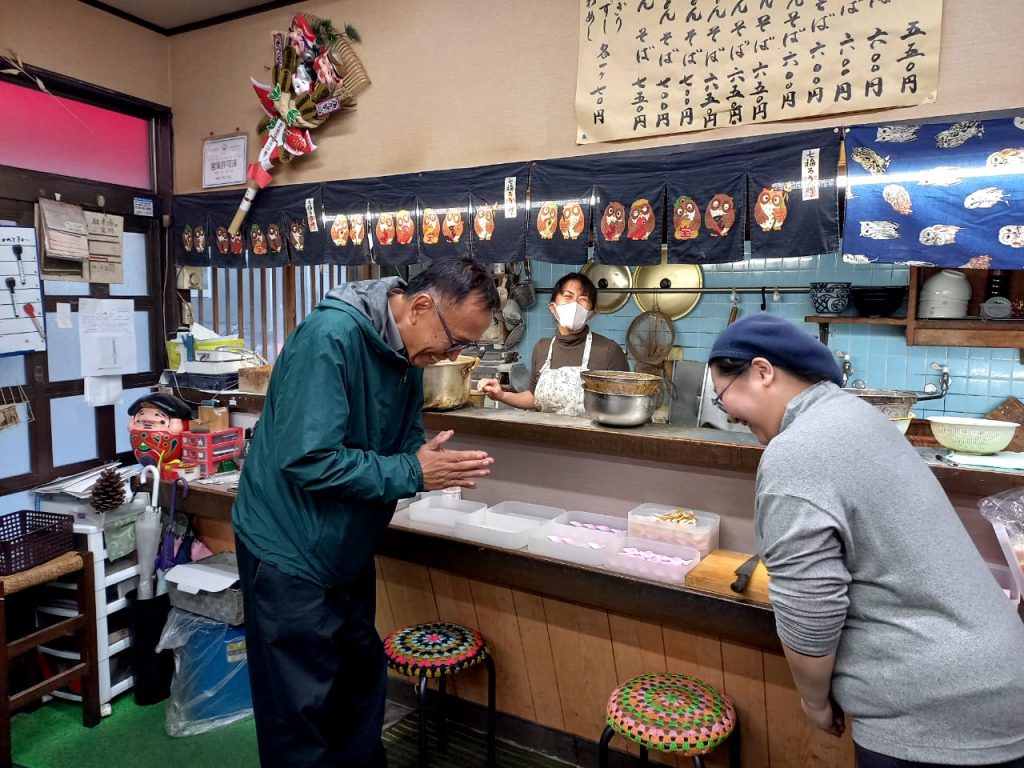
Kitakyushu, Japan, December 2023 – In the early days of winter, on a December afternoon in the outskirts of Kitakyushu, Japan, a friend of Indriyani Rachman, now a lecturer at Kitakyushu University, invited them to savor Udon, a traditional Japanese delicacy. Udon, a type of noodle served in a flavorful broth with a distinctive aroma, proved to be a delightful treat for the taste buds. As they waited for their orders, the friend, also a former classmate of Indriyani, introduced her as a professor to the restaurant owner. In a reflex of cultural respect, the owner turned towards Indriyani, smiled, and bowed as a gesture of honor—a testament to Japan’s profound cultural tradition of respecting elders and educators.
The story of educators transcends borders and time, portraying them as figures of universal significance. Throughout history, teachers have been esteemed and respected, viewed as wise and knowledgeable individuals. This reverence is not confined to Japan but is a global phenomenon.
In the global context, teachers hold an elite status, revered and respected. In Japanese society, for instance, there is a deep appreciation for the teaching profession, with educators being addressed with the honorable title of “Sensei.” According to Tofugu (2019), the term Sensei carries the meaning of “a person born before you were.” It signifies someone who is elder and deserving of respect, often possessing extensive knowledge and skills. This title is not exclusive to teachers but may also be attributed to individuals in other professions with specific expertise highly esteemed by society.
A study conducted by Japan Education System (2018) revealed that among 82 major professions in Japan, teachers or Sensei ranked 18th, school principals 9th, and university professors or Sensei in the 3rd position. This indicates that the teaching profession, school leadership, and university lecturers are highly valued, respected, and appropriately compensated in Japan.
A humorous anecdote shared by an acquaintance living in Japan emphasizes the cultural tradition of honoring Sensei. In Japan, the respect for teachers is expressed through gestures, such as bowing more deeply when encountering a teacher. This story underscores the unique and respectful expressions of gratitude towards educators in Japanese culture.
Similar to Japan, Chinese culture also places great emphasis on respecting teachers. In China, educators are often addressed as “Seonsaeng” or “Xiansheng,” denoting a title of honor for individuals with knowledge who dedicate themselves to teaching. In ancient Chinese tradition, teachers were even honored with a high-protein dried meat known as Xiushu.
Reflecting on the global stage, the novel “Goodbye, Mr. Chips” by James Hilton tells the story of Mr. Chips, a beloved teacher at Brookfield School in rural Finland. The novel explores the impact of Mr. Chips’ teaching methods, his love for his students, and the challenges he faces after getting married. The story ultimately highlights the profound influence teachers can have on the lives of their students.
In conclusion, the role of educators, whether in Japan, China, or on the global stage, is universally revered. Teachers are symbols of wisdom, knowledge, and positive influence, enriching the lives of those they teach and leaving a lasting legacy that transcends time and borders.
